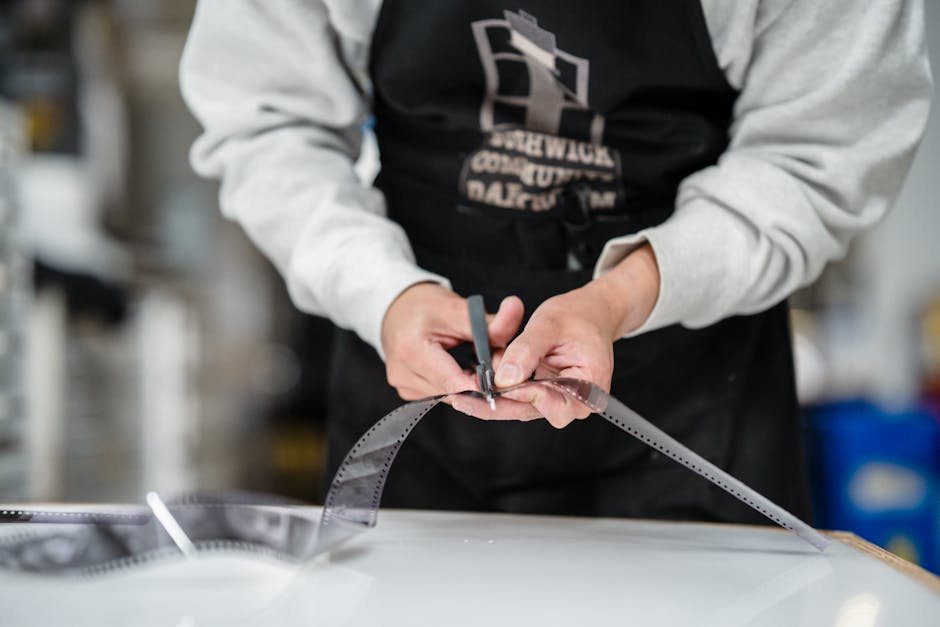Confidence building is a transformative journey that empowers you to unlock your full potential, embrace challenges, and live a more fulfilling life. At Self IQ, we believe that smarter growth leads to a stronger you—and the foundation of that growth is unwavering self-confidence. Whether you’re striving for personal, academic, or professional success, building confidence is a skill you can develop and strengthen over time. In this comprehensive guide, we’ll explore the science, strategies, and daily habits that will help you cultivate lasting self-belief and resilience.
The Science of Confidence: Understanding Your Self-Belief

Photo by cottonbro studio on Pexels
Confidence is more than just a feeling—it’s a mindset rooted in your beliefs about yourself and your abilities. Psychologists define confidence as the trust you have in your capacity to handle life’s challenges and achieve your goals. This trust is shaped by your experiences, upbringing, and the way you interpret setbacks and successes. Research shows that people with high self-confidence tend to set ambitious goals, recover faster from failures, and maintain better mental health.
But confidence isn’t an all-or-nothing trait. It fluctuates based on context, mood, and recent experiences. The good news? Confidence can be learned and reinforced, regardless of where you start. By understanding the psychological foundations of self-belief, you can begin to rewire your mindset for growth and resilience. This process involves recognizing limiting beliefs, challenging negative self-talk, and celebrating your strengths and achievements.
Building confidence is not about arrogance or pretending to be perfect. It’s about trusting yourself, accepting imperfections, and showing up authentically in all areas of your life. As you deepen your understanding of what shapes your self-belief, you’ll be better equipped to cultivate confidence that endures.
Daily Habits for Confidence Building

Photo by Bruno Cortés FP on Pexels
Confidence is built through consistent, intentional actions. The small habits you practice every day lay the groundwork for how you see yourself and how you respond to challenges. Here are some proven daily habits that foster confidence:
- Positive Self-Talk: Your inner dialogue shapes your reality. Replace self-criticism with encouragement and affirmations. For example, instead of saying, “I can’t do this,” try, “I’m learning and improving every day.”
- Grooming and Self-Care: Taking care of your appearance and well-being signals to your brain that you are worthy of respect and attention. Simple acts like dressing nicely or maintaining good hygiene can boost your self-image and mood.
- Healthy Eating and Exercise: Nourishing your body with wholesome foods and staying active not only improves physical health but also enhances your self-esteem and energy levels.
- Mindfulness and Meditation: Practicing mindfulness helps you become aware of negative thought patterns and brings your focus to the present. Meditation can quiet self-doubt and increase your sense of inner calm and confidence.
- Quality Sleep: Prioritizing rest is essential for emotional stability and resilience. Well-rested individuals are more optimistic and better equipped to face daily challenges.
By incorporating these habits into your routine, you’ll gradually shift your mindset from self-doubt to self-assurance. Remember, confidence is a muscle—the more you exercise it, the stronger it becomes.
Overcoming Negative Self-Talk and Limiting Beliefs

Photo by Annushka Ahuja on Pexels
One of the biggest obstacles to confidence building is negative self-talk. These are the critical, discouraging thoughts that undermine your abilities and keep you stuck in a cycle of self-doubt. Common examples include, “I’m not good enough,” “I always mess things up,” or “I’ll never succeed.” Left unchecked, these thoughts can erode your self-esteem and prevent you from taking healthy risks.
The first step to overcoming negative self-talk is awareness. Pay attention to your inner dialogue and notice when you’re being overly critical or pessimistic. Once you identify these patterns, challenge them with evidence and logic. Ask yourself, “Is this thought based on facts, or is it just a fear?” Replace limiting beliefs with empowering alternatives, such as, “I am capable of learning new skills,” or “Mistakes are opportunities for growth.”
Another powerful technique is visualization. Imagine yourself succeeding, handling challenges with grace, and achieving your goals. This mental rehearsal can reprogram your brain to expect positive outcomes and boost your confidence in real-life situations. Over time, as you practice these strategies, your default mindset will shift from self-doubt to self-trust.
Setting and Achieving Goals for Lasting Confidence

Photo by Antoni Shkraba Studio on Pexels
Goal-setting is a cornerstone of confidence building. When you set clear, achievable goals and work toward them, you create a track record of success that reinforces your self-belief. The key is to break down big objectives into manageable steps. For example, if your goal is to run a marathon, start by jogging a few minutes each day and gradually increase your distance. Celebrate each milestone along the way, no matter how small.
Every achievement, no matter how minor, is evidence of your capability. Take time to acknowledge your progress and reward yourself for your efforts. This not only boosts motivation but also creates a positive feedback loop—each success builds momentum for the next challenge.
Remember, setbacks are a natural part of any growth journey. Instead of viewing failures as evidence of inadequacy, see them as valuable learning experiences. Reflect on what went wrong, adjust your approach, and try again. With each attempt, you’ll build resilience and deepen your confidence in your ability to overcome obstacles.
Building a Supportive Environment

Photo by Mental Health America (MHA) on Pexels
Confidence doesn’t develop in isolation. The people you surround yourself with play a significant role in shaping your self-belief. Seek out relationships that uplift, encourage, and challenge you to grow. A supportive environment includes friends, family, mentors, or colleagues who celebrate your successes and provide constructive feedback when needed.
Don’t be afraid to ask for help or share your goals with others. Accountability partners can offer motivation, perspective, and reassurance during tough times. At the same time, set boundaries with individuals who consistently undermine your confidence or drain your energy. Protecting your mental and emotional well-being is essential for sustainable growth.
In addition to social support, curate your environment to inspire confidence. This might mean organizing your workspace, displaying reminders of past achievements, or consuming content that motivates and educates you. The more you immerse yourself in positivity and encouragement, the more natural confidence will feel.
Embracing Challenges and Stepping Outside Your Comfort Zone

Photo by Max Vakhtbovycn on Pexels
True confidence is forged in the face of adversity. Growth happens when you push beyond your comfort zone and tackle new challenges. Each time you try something unfamiliar—whether it’s public speaking, learning a new skill, or taking on a leadership role—you expand your capabilities and prove to yourself that you’re capable of more than you imagined.
Start by identifying areas where you feel hesitant or fearful. Set small, achievable challenges that gradually stretch your limits. For example, if you’re nervous about networking, start by introducing yourself to one new person at an event. As you gain experience and accumulate successes, your confidence will grow.
Remember, it’s normal to feel discomfort or anxiety when trying something new. The goal isn’t to eliminate fear but to act in spite of it. Each step outside your comfort zone is a victory that builds resilience and self-assurance. Over time, you’ll develop a growth mindset that welcomes challenges as opportunities for learning and self-discovery.
Sustaining Confidence for Life

Photo by SHVETS production on Pexels
Confidence building is a lifelong journey, not a destination. As you grow and evolve, your confidence will be tested by new challenges and experiences. The key to sustaining self-belief is ongoing self-reflection, adaptability, and self-compassion.
Regularly assess your progress and celebrate your achievements. When setbacks occur, treat yourself with kindness and patience. Remember that everyone faces moments of doubt—it’s how you respond that matters most. Continue to invest in your personal growth by learning new skills, seeking feedback, and embracing change.
Finally, share your confidence with others. Encourage and uplift those around you, and model self-belief through your words and actions. By fostering a culture of confidence and support, you contribute to a stronger, more empowered community.
At Self IQ, we’re committed to helping you build the confidence you need for smarter growth and a stronger you. Start today, and watch as your self-belief transforms every aspect of your life.
Sources
- https://zenhabits.net/25-killer-actions-to-boost-your-self-confidence/
- https://www.verywellmind.com/how-to-boost-your-self-confidence-4163098
- https://thespeakerlab.com/blog/confidence-building-exercises/
- https://www.mind.org.uk/information-support/types-of-mental-health-problems/self-esteem/tips-to-improve-your-self-esteem/
- https://positivepsychology.com/self-esteem-boost-exercises/





